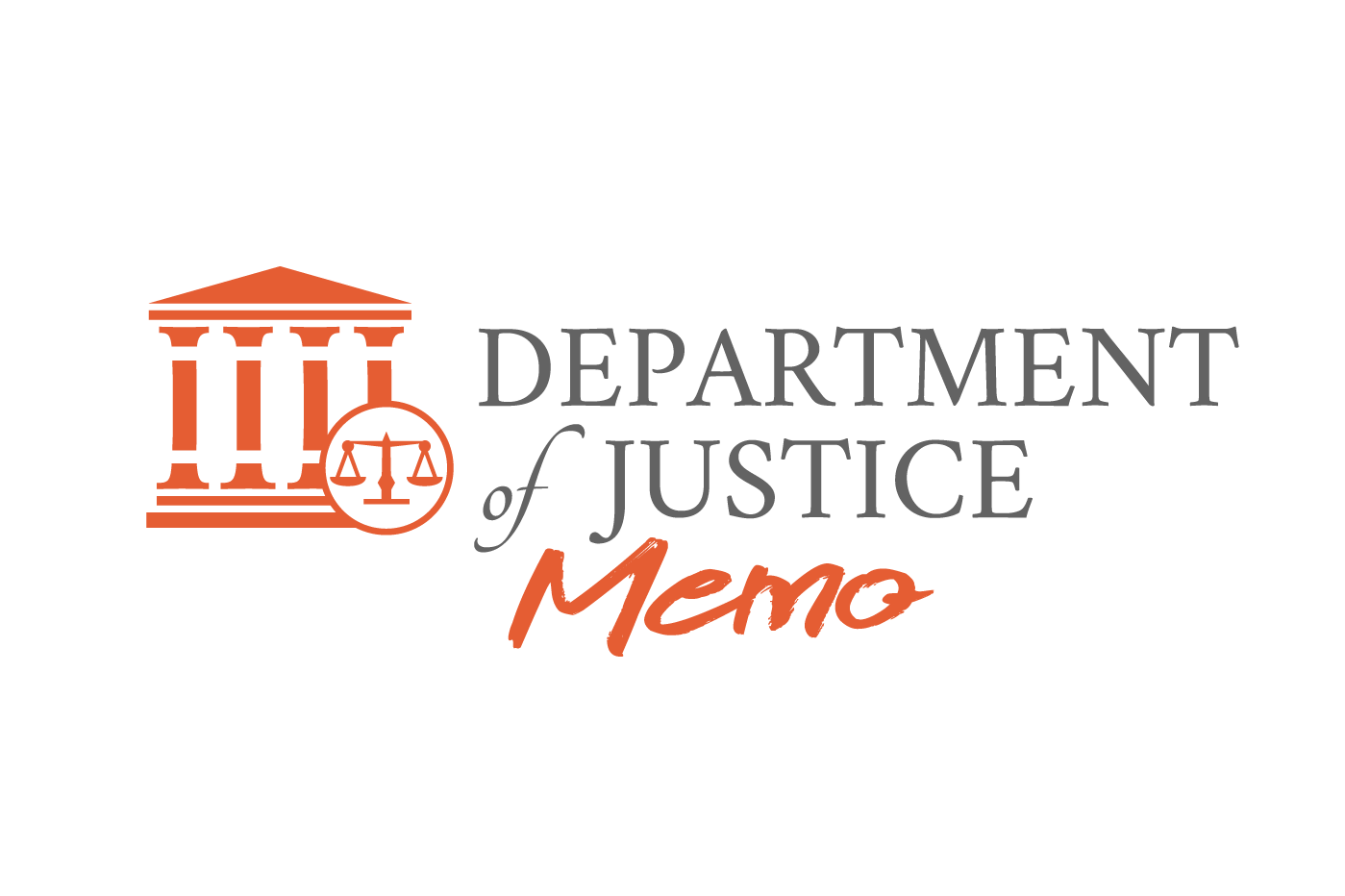US Department of Justice Continues Raising the Bar on Corporate Compliance
In recent years, the Department of Justice has been busy providing businesses with guidance on keeping compliant with the law. Here’s a partial list of the many activities the Department has taken to address corporate compliance efforts in recent years.
- November 2015 Hires Hui Chen as Compliance Counsel Expert
- October 2016 Releases Antitrust Guidance for Human Resource Professionals (with jointly FTC)
- February 2017 Releases Evaluation of Corporate Compliance Programs
- October 2018 Releases Selection of Monitors in Criminal Division Matters
- April 2019 Releases Evaluation of Corporate Compliance Programs (updated)
- July 2019 Releases Evaluation of Corporate Compliance Programs in Criminal Antitrust Investigations
- June 2020 Releases Evaluation of Corporate Compliance Programs (updated)
- July 2020 Releases A Resource Guide to the U.S. Foreign Corrupt Practices Act, Second Edition (jointly with SEC)
- On October 28, Deputy Attorney General Lisa Monaco, who did a previous stint at Justice before returning under President Biden, added to this guide by releasing a Department memo to promote corporate compliance: Corporate Crime Advisory Group and Initial Revisions to Corporate Criminal Enforcement Policies.
In this publication and in a speech in Washington, DC that day, Monaco stressed the importance of an organization’s culture to a commitment to compliance. She stated:
“…Corporate culture matters. A corporate culture that fails to hold individuals accountable, or fails to invest in compliance — or worse, thumbs its nose at compliance — leads to bad results.”
In effect, the new Department memo addresses initiatives all related to organizational culture and how it can be better understood and managed to foster a commitment to compliance with the law.
To this end, Monaco announced three key initiatives to improve corporate cultures of compliance.
1. Senior Level Accountability
Department white collar enforcement efforts will focus more strongly on holding accountable all individuals who aided and abetted an organization’s illegal conduct. The organization is expected to identify all individuals, regardless of position, status, or seniority, in non-privileged information. Identified individuals should go beyond those that the organization believes are substantially involved in the misconduct, including those outside the organization.
Whereas in the past, more focus may have been placed on prosecuting the organization, critics have blamed this policy on allowing senior-level officials to escape blame and not promoting a culture of
accountability within the prosecuted organization. This change will focus on individuals who make business decisions that lead to illegal conduct.
2. Evaluation of Historical Misconduct
When prosecuting a business, the Department will also strengthen its focus on the organization’s breadth and all types of historic misconduct. In the past, prosecutors may have focused narrowly on certain types of past misconduct related to the current prosecution. Now, believing that any past wrongdoing influences a culture of toleration for illegal activity, prosecutors will look holistically at criminal laws, civil laws, and regulatory rules—foreign or domestic, including misconduct anywhere in the corporate family of businesses.
3. Enhanced Use of Corporate Monitors
While the Department has relied on corporate monitors for years to oversee companies under Deferred Prosecution Agreements (DPAs), Non-Prosecution Agreements (NPAs), and actual prosecution, the Department will now look to use monitors more strategically. The new guidance places a more tactical approach on prosecutors to determine the benefit of a monitor vs. the imposition on business operations.
Next, Monaco announced the creation of the Corporate Crime Advisory Group. This body will have multiple duties: increase cooperation and efficiencies within the Department offices, update the Department’s approach to corporate criminal enforcement, and seek perspectives from business, academia, and other interested parties to aid the Department’s efforts.
Monaco then stated the need for additional research to support the Department’s efforts at corporate criminal enforcement and fostering compliance within the business community:
· How to deal with repeat corporate offenders, given that research finds that 10 to 20% of all corporate crime comes from companies with a history of problems with the Department.
· Whether DPAs and NPAs or agreements short of prosecution, work for organizations that have engaged in past misconduct and been subject to a DPA or NPA. The concern is that a business that receives such multiple agreements may look at non-compliance as the cost of doing business versus something that must be corrected.
· Whether companies subject to DPAs and NPAs take them seriously enough to use the opportunity to build a culture of compliance.
Finally, Monaco closed out her remarks by reminding businesses of critical steps they should take to instill a culture of compliance, provided here verbatim:
• Companies must actively review their compliance programs to ensure they adequately monitor for and remediate misconduct — or it will cost them down the line.
• For clients facing investigations, as of today, the Department will review their whole criminal, civil and regulatory record — not just a sliver of that record.
• For clients cooperating with the government need to identify all individuals involved in the misconduct — not just those substantially involved — and produce all non-privileged information about those individuals’ involvement.
• For clients negotiating resolutions have no default presumption against corporate monitors. The facts and circumstances will make that decision about a monitor of each case.
• Looking to the future, this is a start — and not the end — of this administration’s actions to better combat corporate crime.
And, for the recalcitrant business, the hits keep on coming.



